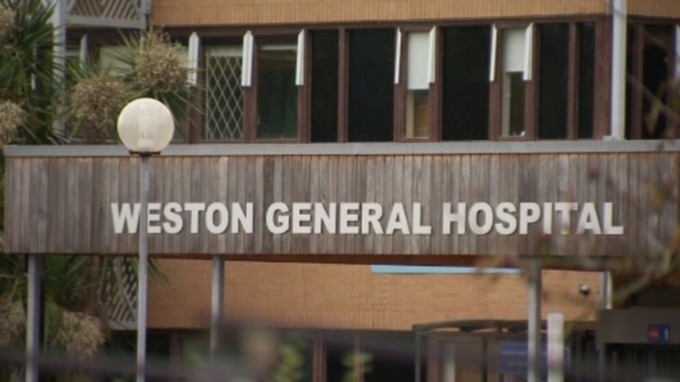Inspectors from health watchdog The Care Quality Commission (CQC) have told trust leaders to improve medical care services at Weston General Hospital.
The CQC has published a new report today (Wednesday) following a focused inspection of the medical care services at the hospital, which is used by many people from across Weston and the Burnham-On-Sea area.
CQC inspected the medical care services department at Weston General Hospital to look at how safe and well-led it was, in response to concerns raised about nursing and medical staffing. As this was a focused inspection, no ratings were given.
In April 2020, Weston Area Health NHS Trust and University Hospitals Bristol NHS Foundation Trust merged to form University Hospitals Bristol and Weston NHS Foundation Trust, and the management of Weston General Hospital came under new management.
Amanda Williams, CQC’s head of hospital inspections, says: “When we inspected the medical care services department at Weston General Hospital, we were mindful that the two trusts merged at the start of the COVID-19 pandemic which has impacted on the plan for integration of the hospitals.”

“We found that staff were caring and focused on the needs of patients, but it was clear that the leadership team needs to make a number of sustainable improvements in order to ensure that the service operates effectively. We have now told the trust that it must send us an action plan outlining what steps they are going to take to address our concerns and make improvements. We will continue to monitor the service to ensure that these are implemented and fully embedded.”
Inspectors say they found several areas of concern:
- Although the leaders at Weston hospital understood the priorities and issues that the medical care services department faced, they did not always manage them or demonstrate that they had the capacity to run the service. There was a perception that the trust’s senior leadership team was not present enough on the wards to understand the issues that staff were facing.
- Governance processes were not used effectively to monitor the quality of care and assess ongoing performance, learning and development of the service.
- The service did not have enough permanent medical staff at all levels to meet the recommended guidance. The majority of medical staff at senior level were employed on a locum basis. There was also a shortage of permanent nursing or therapy staff with the right qualifications, skills, training and experience to keep people safe from harm and provide the right care and treatment.
- Because of the COVID-19 pandemic, patients were grouped together on wards according to their COVID-19 status (positive, awaiting test results, or negative), in accordance with national infection control guidance. This meant that wards were no longer based on their speciality (for example, cardiology, stroke, or care of the elderly). This had resulted in some confusion amongst staff when determining who had senior responsibility for patients in the wards, making it difficult to escalate concerns about a patient’s treatment.
- Although comprehensive risk assessments were mostly completed for patients who needed them, the staff shortages meant there was a risk that patients who were deteriorating were not always recognised in a timely way. In addition, patients did not always have their assessed needs, preferences and choices met by staff with the right skills and knowledge to do so.
- The service did not always manage patient incidents well, or deal with issues early enough to prevent them from becoming problems. Staff recognised most incidents, but they did not always report them, and lessons were not always shared.
- Not all staff were aware of what the trust’s vision, values or strategy were and their role in achieving them. They did not always feel respected, supported and valued and did not feel that they had protection to speak out safely.
However, inspectors say there were also a number of positive findings:
- Staff understood how to protect patients from abuse and acted on any concerns.
- Staff understood how to manage infection prevention and control and all areas were visibly clean. Staff wore appropriate personal protective equipment (PPE) to keep themselves and others safe from cross infection.
- Staff kept detailed records of patients’ care and treatment. Records were clear, up-to-date, and available to all staff providing care. Patient records were managed securely.
- Staff anticipated people’s needs and responded compassionately when people needed help. They also recognised the importance of people’s privacy and dignity.
Responding to the inspection, Deirdre Fowler, Chief Nurse at University Hospitals Bristol and Weston NHS Foundation Trust, says: “We welcome this CQC report and fully accept that there are areas in medical care services at Weston General Hospital which we need to improve. Issues highlighted in the report reflect challenges, particularly around nurse and medical staffing, that the hospital has faced for many years. We were actively seeking to address these issues in planning for our merger just over 12 months ago, which happened at the start of the global COVID-19 pandemic.”
“Nevertheless, we have already made significant progress with work to address these challenges either completed or underway. For example, a new cohort of registered nurses has been recruited and is due to join Weston over the next six months, and we are actively working to recruit more doctors. While we expect to reduce our vacancies from current levels, we are block booking temporary staff in the meantime so that the same professionals provide continuity of care.”
“It’s important we recognise and thank our hard-working staff at Weston General Hospital for their dedication and commitment over the past year of the pandemic, and we were pleased the CQC found that staff were caring and focused on the needs of our patients.”
“Inspectors highlighted how staff responded compassionately when people needed help and support, anticipating patient’s needs, and recognised the importance of privacy and dignity. Inspectors also found that records of patients’ care and treatment were clear and up-to date and available to all staff providing care, that ward areas were visibly clean, and that staff on the wards understood how to manage infection prevention and control and wore appropriate PPE to keep themselves and others safe. We are committed to making the necessary improvements and our focus will remain on providing safe and high quality care to our patients.”







